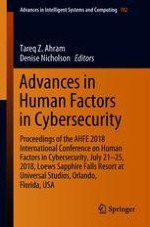2019 | OriginalPaper | Buchkapitel
Designing an Effective Course to Improve Cybersecurity Awareness for Engineering Faculties
verfasst von : Ghaidaa Shaabany, Reiner Anderl
Erschienen in: Advances in Human Factors in Cybersecurity
Aktivieren Sie unsere intelligente Suche, um passende Fachinhalte oder Patente zu finden.
Wählen Sie Textabschnitte aus um mit Künstlicher Intelligenz passenden Patente zu finden. powered by
Markieren Sie Textabschnitte, um KI-gestützt weitere passende Inhalte zu finden. powered by
